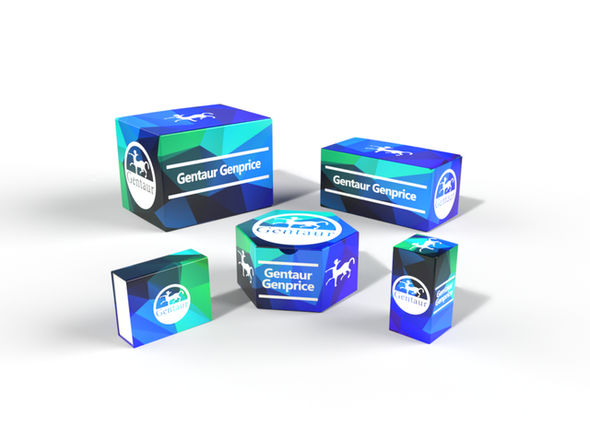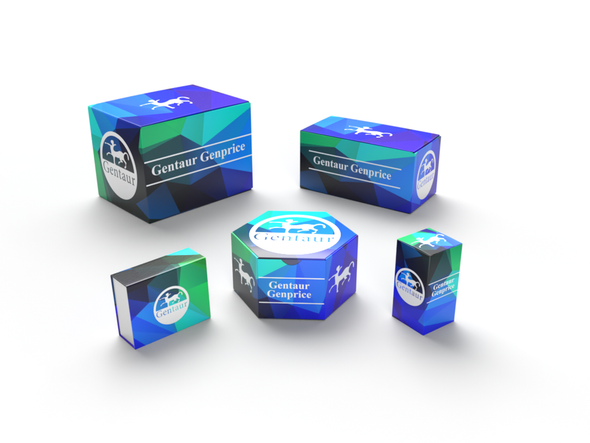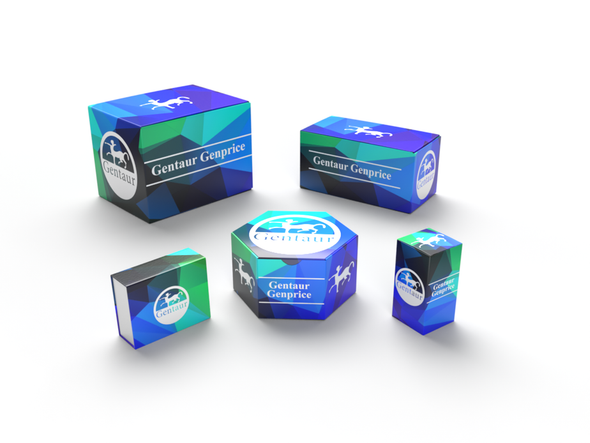740
Rat Plasminogen activator inhibitor 1 (PAI1) ELISA Kit | AE59795RA
- SKU:
- 740-AE59795RA
- Availability:
- Usually ships in 5 working days
Description
Rat Plasminogen activator inhibitor 1 (PAI1) ELISA Kit | AE59795RA | Gentaur UK, US & Europe Distribution
Species Reactivity: Rat (Rattus norvegicus)
Abbreviation: SERPINE1
Alternative Name: PAI; PAI-1; PAI1; PLANH1; plasminogen activator inhibitor-1|serine (or cysteine) proteinase inhibitor; clade E (nexin; plasminogen activator inhibitor type 1) ; member 1
Application: ELISA
Range: 0.781-50 ng/mL
Sensitivity: 0.29 ng/mL
Intra-Assay: ≤7.1%
Inter-Assay: ≤9.8%
Recovery: 1
Sample Type: Serum, Plasma, Other biological fluids
Detection Method: Sandwich
Analysis Method : Quantitive
Test Principale: This assay employs a two-site sandwich ELISA to quantitate SERPINE1 in samples. An antibody specific for SERPINE1 has been pre-coated onto a microplate. Standards and samples are pipetted into the wells and anySERPINE1 present is bound by the immobilized antibody. After removing any unbound substances, a biotin-conjugated antibody specific for SERPINE1 is added to the wells. After washing, Streptavidin conjugated Horseradish Peroxidase (HRP) is added to the wells. Following a wash to remove any unbound avidin-enzyme reagent, a substrate solution is added to the wells and color develops in proportion to the amount of SERPINE1 bound in the initial step. The color development is stopped and the intensity of the color is measured.
Product Overview: Plasminogen activator inhibitor-1 is the principal inhibitor of tissue plasminogen activator (tPA) and urokinase (uPA), the activators of plasminogen and hence fibrinolysis (the physiological breakdown of blood clots) . It is a serine protease inhibitor (serpin) protein (SERPINE1) . The other PAI, plasminogen activator inhibitor-2 (PAI-2) is secreted by the placenta and only present in significant amounts during pregnancy. In addition, protease nexin acts as an inhibitor of tPA and urokinase. PAI-1, however, is the main inhibitor of the plasminogen activators. PAI-1 is mainly produced by the endothelium (cells lining blood vessels), but is also secreted by other tissue types, such as adipose tissue.
Stability: The stability of ELISA kit is determined by the loss rate of activity. The loss rate of this kit is less than 5% within the expiration date under appropriate storage condition. The loss rate was determined by accelerated thermal degradation test. Keep the kit at 37°C for 4 and 7 days, and compare O.D.values of the kit kept at 37°C with that of at recommended temperature. (referring from China Biological Products Standard, which was calculated by the Arrhenius equation. For ELISA kit, 4 days storage at 37°C can be considered as 6 months at 2 - 8°C, which means 7 days at 37°C equaling 12 months at 2 - 8°C) .










